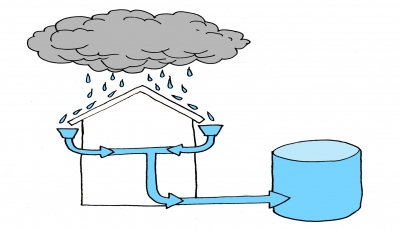Reclaim Waste Melbourne: Leading Solutions for Detailed Liquid Waste Removal
Fostering Resource Performance and Environmental Management With Liquid Waste Elimination Programs
In the world of environmental stewardship, the monitoring of fluid waste stands as an important time where resource efficiency and environmental security assemble. With a lens of positive involvement and tactical foresight, the landscape of liquid waste administration reveals a tapestry of difficulties and opportunities that bid us to explore the path towards a greener and more sustainable future.
Importance of Liquid Waste Removal
The relevance of fluid waste elimination exists in its critical duty in maintaining ecological wellness and protecting public wellness. Liquid waste, if not properly managed, can pose serious dangers to ecological communities, water resources, and human health and wellness. With effective removal processes, damaging compounds such as chemicals, microorganisms, and contaminants are protected against from contaminating the setting and creating damaging effects.
Proper fluid waste removal likewise assists in avoiding the spread of conditions and minimizing the capacity for groundwater contamination. By securely dealing with liquid waste, the threat of waterborne health problems and pollution-related health and wellness concerns is substantially reduced - Reclaim Waste Melbourne. Additionally, effective elimination methods add to preserving the overall sanitation and aesthetic appeals of areas, thus boosting the lifestyle for homeowners
Moreover, fluid waste removal plays a crucial function in sustaining lasting development and making certain compliance with environmental guidelines. By sticking to proper waste administration methods, markets and organizations can decrease their ecological impact and demonstrate business duty. Inevitably, investing in robust liquid waste removal programs is necessary for advertising environmental stewardship and fostering a healthier, more secure future for all.

Benefits of Effective Disposal
Efficient disposal of fluid waste not only safeguards environmental health and public wellness but likewise produces various advantages that extend beyond instant control steps. One vital advantage of effective disposal is the decrease of pollution in water bodies and dirt. By properly handling fluid waste, the risk of contamination reduces, maintaining ecosystems and protecting biodiversity. In addition, efficient disposal practices add to source preservation. Via procedures like reusing and power recovery, important resources can be drawn out from fluid waste, promoting sustainability and decreasing the stress on basic materials. Adopting effective disposal approaches can lead to set you back financial savings for organizations and areas. By optimizing waste monitoring processes, companies can simplify procedures, lessen disposal expenditures, and potentially generate profits via the sale of recycled products. Generally, the advantages of effective liquid waste disposal are multifaceted, encompassing environmental management, source effectiveness, and economic benefits.
Technologies for Waste Therapy
Making use of sophisticated modern technologies for waste treatment plays an essential role in guaranteeing the effective monitoring and risk-free disposal of liquid waste. One of the vital modern technologies utilized in liquid waste therapy is organic treatment. This approach uses bacteria to damage down raw material in the waste, transforming it into harmless results. One more common modern technology is chemical therapy, where chemicals are added to the waste to neutralize unsafe elements or precipitate contaminations for removal. Physical therapy techniques, such as filtration and sedimentation, are additionally commonly made use of to separate solids from fluid waste.
Additionally, thermal treatment techniques such as incineration can be used for the full devastation of hazardous components in liquid waste. Generally, the combination of varied therapy modern technologies ensures ecologically pleasant and detailed monitoring of fluid waste.
Duty of Rules and Conformity
In the world of fluid waste administration, adherence to governing structures additional resources and conformity requirements is paramount for securing ecological health and wellness and sustainability. Regulations play a critical duty in controling the proper handling, therapy, and disposal of liquid waste to stop damage to environments and human health and wellness. By establishing clear standards and criteria, regulative bodies make sure that services and individuals involved in fluid waste monitoring operate in an environmentally responsible manner.
Conformity with these guidelines is not only a legal need however additionally a moral responsibility to secure the environment for future and existing generations. It includes implementing ideal methods in waste collection, therapy, disposal, and transport to minimize ecological impact and advertise resource efficiency. Non-compliance can result in penalties, lawsuit, and reputational damage for companies, highlighting the value of maintaining regulatory requirements.

Future Fads in Waste Administration

One more vital fad in waste monitoring is the fostering of sophisticated data analytics and man-made intelligence to enhance waste collection paths, enhance sorting procedures, and boost general operational efficiency. These technologies enable waste administration companies to make data-driven choices, causing cost savings and ecological benefits.
Additionally, there is a growing focus on the advancement of decentralized waste management systems, such as onsite therapy facilities and try this website mobile waste processing devices. These systems provide flexibility and scalability, enabling a lot more effective waste handling in varied atmospheres.
Conclusion
To conclude, promoting resource effectiveness and ecological protection with fluid waste removal programs is crucial for lasting development. Reliable disposal techniques, advanced modern technologies for waste treatment, and rigorous policies play vital functions in minimizing ecological impact. Looking ahead, continuous advancement and improvement in waste administration practices will be crucial for resolving the growing difficulties of fluid waste disposal.
In the realm you can find out more of ecological stewardship, the management of liquid waste stands as a crucial point where source efficiency and ecological protection assemble (Reclaim Waste).Making use of innovative technologies for waste treatment plays a vital role in ensuring the efficient administration and secure disposal of liquid waste.In the realm of liquid waste administration, adherence to governing structures and compliance standards is critical for protecting environmental health and wellness and sustainability.In final thought, cultivating resource efficiency and ecological defense through liquid waste removal programs is vital for lasting development. Looking ahead, constant advancement and enhancement in waste monitoring techniques will certainly be crucial for addressing the expanding challenges of liquid waste disposal